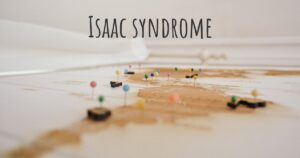Read time 10 minutes
This blog is another opportunity to feel grateful. Thank you, dear Universe, you continue to bless me with recovery and health.
I am trying to sleep, and suddenly there goes tick, tick. It went unrested as the frequency was at least once every 30 seconds, and it went on for hours.

Life’s greatest lessons usually show up when we least expect them, and they become quite challenging to understand. Many people across the globe use the term rare disease to address an uncommon condition.
This is my personal story. But it’s about you, too.
I was once capable of living a normal life with ease. It was, however, a normal morning for me, ignorant of the fact that my life was about to change by leaps and bounds. Never in my life had I related to anything so intensely. The way the extrinsic stimulus unfolded evoked a shocking biological response for me. Living with a rare disease with a list of ongoing alien symptoms isn’t easy. After the diagnosis, many unanswered questions and emergencies led to tremendous stress and anxiety.
My identity was shattered for life. I am still in search of who I am.
Isaacs’ Syndrome is a spontaneous muscle movement and muscle weakness. It gets triggered by the peripheral nerve region. It is also called Neuromyotonia and Isaacs-Mertens syndrome. Also termed, Continuous muscle fiber activity syndrome, and Quantal squander syndrome. There is no permanent cure for it, yet.
In the process, I also discovered that I had Lyme disease. Lyme is a bacterial illness that gets transmitted through ticks.
Glaucoma also accompanied me. Glaucoma is an eye-related disease that damages the optic nerves. And Membranous Glomerulonephritis is a progressive kidney disease. I faced tremendous issues with my gut, stomach acid, and digestive enzymes. During my journey, I also developed Irritable Bowel Syndrome (IBS), Diabetes, Frozen Shoulder, Eczema and Blood Pressure.
Why am I called rare because I have Isaacs’ Syndrome?
- First, the disease has fewer than 40 recorded cases in India. It is scattered, and there is little public awareness or information about it. As a result, resources for fighting the disease are also limited.
- Proper treatment is difficult as doctors are often unsure of what they are treating.
- There is a lack of awareness, and finding research can be challenging due to limited data.
- They are difficult to diagnose because of their infrequency of occurrence. Even the symptoms are quite complex.
- Large pharma companies aren’t interested in finding any solution, given the few patients and unfavorable economies of scale.
The result left me with many unanswered questions.
Unveiling Isaac’s Syndrome. How did I get diagnosed with it?
I was in the prime of life, working as a successful Investment Banker when my superstorm hit, and everything came crashing down. It happened so instantly; I was declared rare.
Although I was diagnosed in 2016, the symptoms were visible long before. With time, the symptoms of Isaacs’ Syndrome became drastically noticeable.
Initially, the doctors thought it was my poor blood and urine health indicators that sufficiently explained my continuous body weakness, weight loss, fever, and diarrhea. They put me on medications for various vitamin deficiencies and high cholesterol. My condition went from bad to worse within a couple of months. I even found walking difficult, while my body pains and weakness increased.
The doctors decided to test my CPK levels. It indicates muscular injury or stress. It was found that the CPK levels were drastically increased.
I was immediately hospitalized for a detailed medical evaluation. Clinical tests were conducted, including EMG, PET scan, MRI, and lumbar spine ultrasonography. Also, my kidney biopsy and antibody tests like GAD and Caspr2, with common urine and blood tests, were done.
I was angry, frightened, and confused as the symptoms gripped me. The results confirmed me as rare. The doctors confirmed the diagnosis of Isaacs’ Syndrome.

Finally receiving a diagnosis was like getting a rebirth
A rare disease has many faces, but getting a diagnosis is key.
My doctors finally had it. They finally disclosed and gave my list of symptoms a socially constructed label. However, my first thought was to thank God for finally getting a diagnosis. I thought that at last, I would start with the correct treatment plan and have answers to my list of questions.
But the very second moment, the reality sets in. I discovered that the illness is only manageable and has no cure. The illness is quite invisible, and rare, and has done some severe damage to the other organs of my body.
Even after getting the diagnosis, it won’t be that easy to manage the reality. It is very capable of messing up the future and is quite unpredictable. Chronic symptoms and a heavy dosage of medicines enclosed my mind and stole my soul.
Even though I never let go of my strong conviction that I’m fine. But it was never easy to be fine after the diagnosis.
The reason behind all this
Though the exact cause of Isaacs’ Syndrome is unknown. It is often associated with some types of cancer.
In my case, a detailed conversation led to the conclusion. It could be caused by a genetic disorder. It also meant it could have existed long before any symptoms could be seen. Often, the disease shows no traces or signs until the last moment.
The doctors also investigated whether I could have contracted the disease from my living environment. However, I had no such history, ruling out this possibility.
What were my signs and symptoms, pre- and post-diagnosis?
In my experience, during any disease or infection, it is the weaker parts of the body that bear the maximum adverse effects.
I faced severe pain throughout my body. I had difficulties walking or sitting, even for a short while, and had to lie down in one position. I suffered weakness, muscle loss, muscle twitches, stiffness, and fasciculation. My arms, shoulders, chest, and calves were the most affected areas. Besides, I went through fatigue, mood swings, and weight loss. I had acute indigestion and bloating of the stomach. Slowly, I became prone to a couple of infections.
What is my course of treatment?
Initially, I started with symptomatic treatment. Allopathic medicines and therapies seemed the only source of immediate relief.
Over time, I became completely dependent on the medical system, which didn’t help me heal. I realized the need to try a holistic healing approach. Alternative treatments using AYUSH methods, including various physical and mental therapies, were done. Ayurveda, Homeopathy, Naturopathy, Meditation, and some Yogic practices proved effective in my case.
How notorious is Isaacs’ Syndrome?
I was once capable of living a normal life with ease. The experience was as much mental torture as it was physical.
After my diagnosis, when symptoms of the disease were at their peak, I was bedridden for almost 2 years. There were no physical activities accompanied by pain and dire weakness. I was angry, frightened, and confused as the symptoms gripped me.
I had never experienced anything like this before.
I was on a handful of medicines that made me feel drowsy, thirsty, and weak. My energy levels were so limited that I could just about crawl through my day’s activities. The uncertainty was unimaginable. There were times when I would start the day on a good note, get jittery by lunch, and end the day having a bedridden dinner. Even my taste sensations which were once entirely at my disposal, bid me goodbye. Financially, it took a toll on the family’s wallet.
What was the hardest part of finding out that I had Isaac’s Syndrome?
Chronic symptoms and a heavy dosage of medicines enclosed my mind and stole my soul. Some aspects were managed with considerable effort, but these were 4 major struggles:
- People saw the disease in me before they saw me.
- I had to sacrifice freedom, and life became more of a strict prescription from every angle.
- I had to say yes to receiving help.
- Keeping my sanity.
How did this identity crisis make me address the situation?
Everyone loves to be mentally strong. But they hate it when circumstances are practically challenged.
Many moments made me feel like I had superpowers. Those moments gave the impression that I could change my circumstances! Somewhere within me, I knew that things needed to be channeled constructively.
Self-love and love for family inspired my life and I found the courage to venture into the realm of self-healing. I discovered my battlefront, with wounds to treat and find my peace.
I think that is when I started to change.
- The first step for me was comprehending and accepting what had happened.
- It is followed by undergoing physical and mental therapies. These treatments would help me regain my lost confidence. (I will discuss these therapies in my later blog articles).
It felt like I lost myself (a glimpse of my life before Isaacs’ Syndrome):
I experienced a life-changing walk on a beach after a hectic day’s work that left a lasting impact. It was such a delightful activity that cleared my mind and made my thoughts lighter. But I never imagined that my life was about to change in no time!
From having a passion for running to traveling to becoming bedridden for two years. I was forced to quit working as an investment banker. The career that defined my life was gone forever.
I remember spending most of my energy on self-care. I was catching up more often with doctors than with friends. Now, any comparison with my peers’ lifestyles is no longer meaningful. It results only in frustration. I don’t imagine my future any longer, let alone plan it.
But does it ever get over, until it gets over
Here are some practical ways that helped me rekindle myself:
- The first step was engaging myself in self-care
- I learned to listen to what my body said and had a gentler approach to it
- Learning, researching, and discussing
- Followed a disciplined and honest approach towards life. It helped in understanding the key difference between chaos and clarity
- Some situations in life need more support than others. Therefore, said yes to taking help. Celebrated togetherness with family and friends
- Building a strong Financial Plan and taking adequate Insurance support
- Engaging with, taking, and helping support groups and my rare disease community
- Found ways to engage constructively with a strong intention to heal
- Took small and easy steps towards progress
Does my suffering from a rare disease, Issacs’ Syndrome, mean that I am the only person fighting it?
I wish to address this and other questions in my journey through ordinarilyrare.com. It is my initiative to spread awareness about rare diseases. It is compiling and sharing knowledge of my experiences for the benefit of others. The primary focus is to become solution oriented.
Initially, no one around could have told me that somewhere in this ambiguity was a glimmer of light. I had to find my way out.
To Conclude
Isaacs’ Syndrome is a spontaneous muscle movement and muscle weakness.
The disease has fewer than 40 recorded cases in India. It is scattered, and there is little public awareness or information about it. As a result, resources for fighting the disease are also limited. There is no permanent cure for Isaac’s Syndrome.
Though the exact cause of Isaacs’ Syndrome is unknown. It is often associated with some types of cancer. I started with symptomatic treatment. Allopathic medicines and therapies seemed the only source of immediate relief. Over time, I realized the need to try a holistic healing approach.
The power of hope helped me fight back and overcome insurmountable situations. I learned how personal catastrophes, if seen with the eyes of hope, can be accompanied by opportunities.
With time, I was able to reduce my daily intake of pills. Better nerve health improved vital statistics, and overall health improvement increased my self-confidence.
Although I didn’t wish for any of this, however, I now realize that they were my biggest teachers. They taught me more about the world than all my earlier experiences.
I encourage my fellow mates to seek understanding and compassion. Please spend time looking for hope that could become your strength. It can change our reality. It can change our reality.
I know all of this is true because I have fought my way out.
DISCLAIMER
The views expressed above in this article are the author’s own and do not represent any kind of medical advice.


